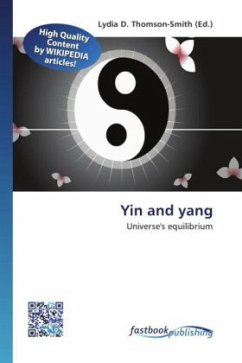Please note that the content of this book primarily consists of articles available from Wikipedia or other free sources online. Yang Zhu was a Chinese philosopher during the Warring States Period. An early hedonist, ethical egoist, or sophist alternative to Confucian thought, Yang Zhu''s surviving ideas appear primarily in chapter seven of the Liezi. The philosophies attributed to Yang Zhu, as presented in Liezi, clash with the primarily Daoist influence of the rest of the work. Of particular note is his recognition of self-preservation, which has led him to be credited with "the discovery of the body". In comparison with other Chinese philosophical giants, Yang Zhu has recently faded into relative obscurity, but his influence in his own time was so widespread that Mencius described his philosophies along with the antithetical ideas of Mozi as "floods and wild animals that ravage the land" (Liu: 1967: 358).
Bitte wählen Sie Ihr Anliegen aus.
Rechnungen
Retourenschein anfordern
Bestellstatus
Storno








